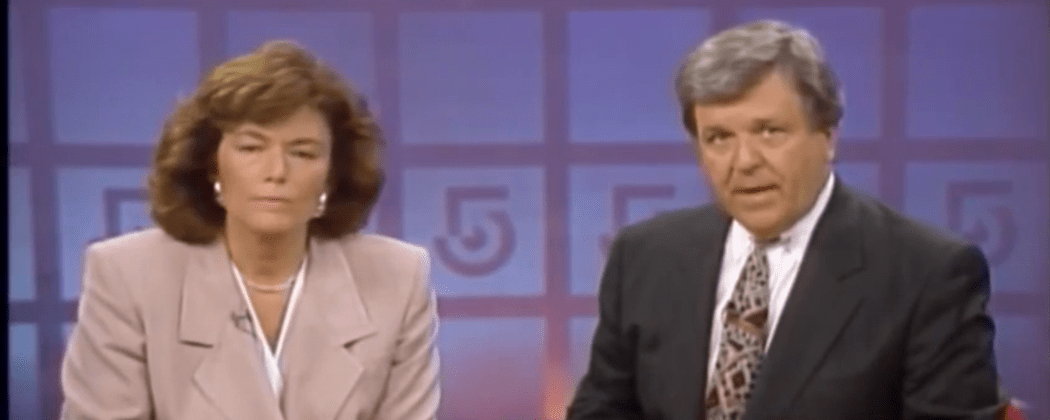Advertisement
Chet Curtis — Remembering A Journalist's Journalist

There’s a special kind of journalist, someone who’s equally comfortable talking to (or bellying up to the bar with) a conservative or liberal, a dockworker or a poet. As life in America continues to get more fragmented, and media personalities get pushed to the extremes, such journalists are in danger of becoming artifacts of a time when television, in particular, was a source of common ground rather than pitched battle.
That was what was so admirable about the late Chet Curtis, who was a journalist’s journalist, whether he was a reporter on the street or an anchor behind the desk. He was authoritative without being authoritarian (unlike his one-time WCVB colleague, Bill O’Reilly); he used his microphone as a means of communication rather than of self-aggrandizement.
Curtis, who died of pancreatic cancer Wednesday, was the anchor for WCVB-TV, Channel 5, along with his then-wife Natalie Jacobson, when I was covering TV for the Boston Globe in the ‘80s and ‘90s. At the time “Chet ‘n’ Nat” were in a ratings battle with WBZ’s Jack (“Last man standing”) Williams and Liz Walker for supremacy in the nightly news ratings. They were so close, and equally admired, that it would usually come down to who had the best lead-in.
But when it came to breaking news or coverage of political events, Channel 5 was the go-to place, thanks in large part to Curtis. He had just the right mix of gravitas and earthiness. It didn’t matter whether it was Nelson Mandela in Boston or Michael Dukakis running for president. He knew his stuff without strutting how smart he was. As David Boeri said in his remembrance of his Channel 5 colleague, Jacobson was the star and Curtis was the quarterback.
There wasn’t any pretension to Curtis. What you saw was what you got, though one of the fonder memories I have of him was of his bumming a cigarette from me — back when journalists smoked — but then being afraid to light it because his daughter was at the same restaurant. (The ‘80s weren’t all good.)
What you did get from Curtis was the sense of someone who not only enjoyed his work but who enjoyed his life. I think he struck viewers that way, too, and Channel 5 wasn’t shy about promoting him as a man who wasn’t afraid to get in his plane and get away from it all before coming back to earth to do his job whole-heartedly.
After we had both moved on, he to New England Cable News and me to becoming theater critic at the Globe, I remember an interview we did when Arthur Miller died. He asked about Willy Loman and the American dream and by the end of it I thought he was more articulate about Miller’s place in the firmament than I was.
His taste, though, seemed to drift more toward politics and races for governor or senator, which is where he really brought more to the table than the anchors at the other stations, at least until R.D. Sahl became anchor at Channel 7 in 1987. Though outside of Andy Hiller, Sahl didn’t have the support team that was at Curtis’s disposal at Channel 5. He was really in his element chewing the political fat with Boeri, Clark Booth, or Doris Kearns Goodwin.
All golden ages come to an end. Channel 7 was sold to Sunbeam in 1993 and local news started to become less serious, more tabloid. Curtis’s marriage to Jacobson fell apart in 2000, which is when he shifted to NECN where, ironically, he and Sahl, two soulmates, became teammates.
That was then. The local TV news business is pretty much just a business now. But when Chet Curtis was on the air, it was always more than that.


